Whisk(e)y is one of the fastest-growing industries in the entire spirits game, seeing yet another boom during the global pandemic. But that growth has also revealed pain points — as the need for the industry to diversify gained mainstream, much-needed attention in 2020. It’s a multi-pronged conversation (because whisk(e)y needs to evolve in multiple ways) and has brought a fair bit of controversy along with it.
To continue the discussion about how whisk(e)y is becoming more inclusive, what the future of the industry looks like, and where it needs to head, we reached out to nine well-known women in the industry — distillers, blenders, managers, entrepreneurs, and organizers. Many of these conversations came as part of my whiskey show on IGTV, Expression Session, where these themes are often discussed. Our panel includes:
- Elizabeth McCall, Assistant Master Distiller Woodford Reserve
- Dr. Rachel Barrie, Master Blender The Glendronach, Benriach, and Glenglassaugh
- Nicole Austin, Master Distiller Cascade Hollow Distilling/George Dickel
- Samara Rivers, Founder Black Bourbon Society
- Emma Walker, Master Blender Johnnie Walker
- Diane Farrell, Senior Site Operations Manager Talisker
- Carin Luna-Ostaseski, Founder of SIA Scotch Whisky
- Ann Soh Woods, Founder Kikori Japanese Whiskey
- Maureen Robinson, Master Blender Buchanan’s Scotch Whisky
These are the women who are passionate about building an inclusive whiskey world while also being at the top of the whisk(e)y game, overall. Check their wisdom below.
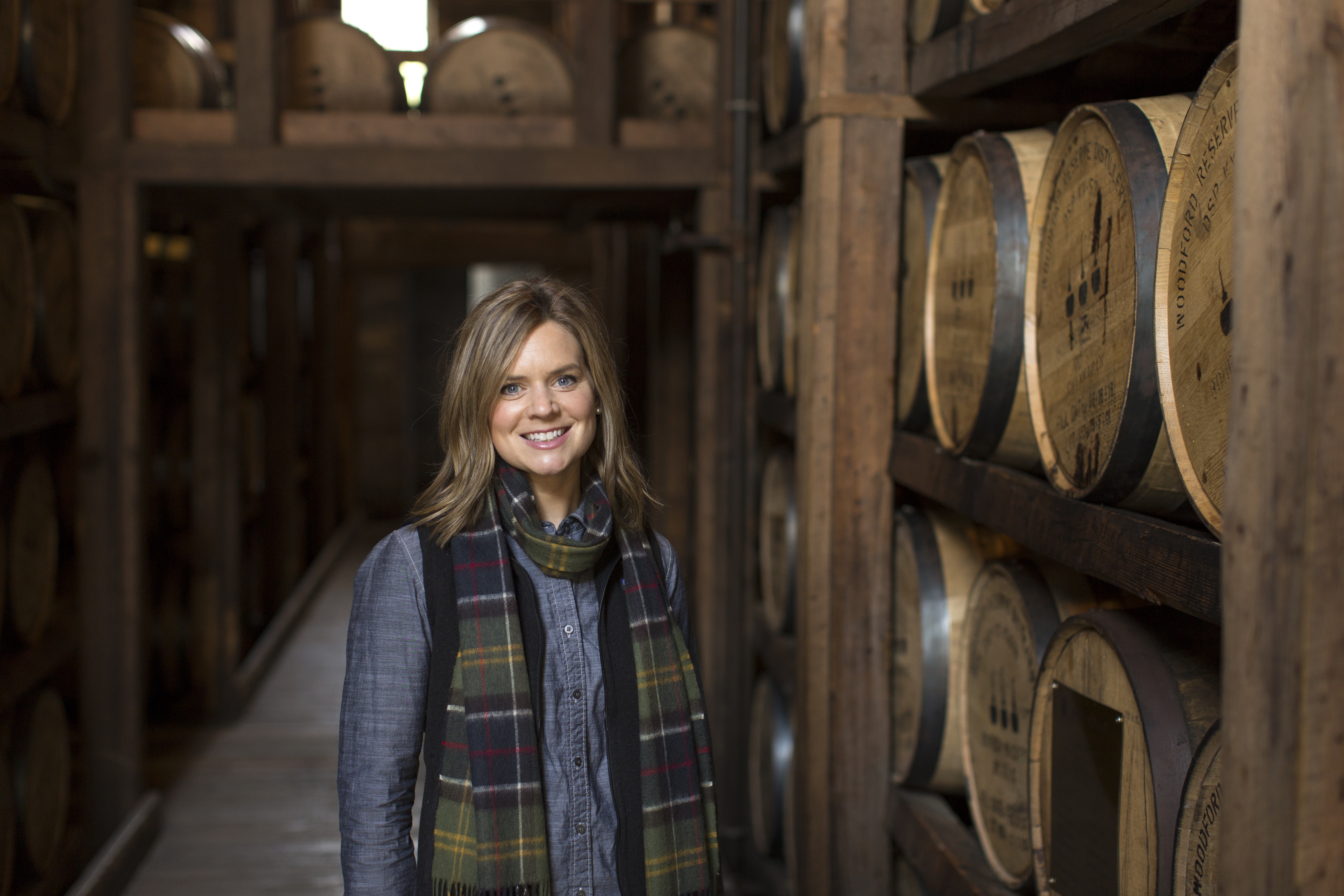
Elizabeth McCall
Since you started working in whiskey (and the wider drinks industry), what have you seen change in relation to women and diversity in the industry?
Elizabeth McCall:
Since I started working in this industry, I have seen women become the rule, not so much the exception. I think the perception is still that women are just now breaking into the whiskey category as consumers, bartenders, writers, connoisseurs, production workers, and distillers, but the reality is that women have been in these roles for years now. I feel that at this point it would be odd to not have women at tastings, events, behind the bar, writing stories, etc.
Women are truly driving the whiskey category.
Dr. Rachel Barrie:
Over the past 29 years, I have been very fortunate to work with both men and women from all over the globe in an industry with incredible reach (more than 200 countries) and where its people are as diverse as the whiskies it makes. Without a doubt, there are more women now involved in the industry. Women are influencing production and marketing, finance and sales, and through diversity, inclusion, and collaboration, a broader audience is being reached, enriching the experience for all.
Nicole Austin:
People in the industry definitely discuss diversity more than before, acknowledging there is work to be done. On the ground, however, I have found there hasn’t been much change. The industry has a long way to go.
Samara Rivers:
I’ve seen more women rise to positions of leadership within the industry. There are several brands that now have female master distillers, brand ambassadors, and are in charge of brand development and innovation. Women and consumers of color are also trending in on and off-premise sales roles.
Emma Walker:
I often get asked about working in a male industry, but to be honest, this hasn’t been my experience. Our team at Johnnie Walker has a pretty even male-to-female ratio. Plus, there are female Master Blenders at Bell’s and Buchanan’s within Diageo as well. That’s also reflected in the distilleries, and I’m seeing more female operators and engineers at different distilleries and sites across Scotland. The industry is as diverse as the whisky is!
Diane Farrell:
I feel there has been a significant shift in the number of women who work in the whisky industry over the years with considerable effort on the journey to make it a gender-balanced industry — and I see that trend continuing. Women are working across all levels of the whisky industry, which is encouraging to see, and it acts as an inspiration for other women who are considering a career in whisky. I don’t see there being any blockers from within the workplace to support an inclusive and diverse workforce. I’m only seeing positive reinforcement.
Carin Luna-Ostaseski:
I’ve actually found the whisky industry to be welcoming to me and to SIA, and it’s often women who are opening the doors. When it comes to Scotch whisky, there’s a common misconception that it’s reserved for men quietly sipping at home or that it’s too strong for certain palates. SIA was created to welcome more people into the category and has a taste profile built for today’s modern palate, for both men and women alike.
Ann Soh Woods:
We have seen a steady, but slow, increase in women and BIPOC working in a wide variety of positions in the industry. I am particularly pleased to see increased diversity in leadership positions in key distiller, brand creation, and brand management roles. I think it is great that women are now part of the story.
When whiskey comes to mind, people typically think of your dad, your grandfather, and a lot of men. Fairly recently, in whiskey cocktail culture, I’ve noticed that women are now making decisions and deciding which cocktails they want. There is a growing population of women who know their whiskey, are organizing groups, and are becoming extremely savvy and educated on what they are drinking.
Maureen Robinson:
When I first became a blender in 1986, a woman master blender/distiller was unique — I was probably the first woman Scotch blender in the modern era — but in the Scotch whisky industry today there are many women in various roles that historically were carried out by men. In Diageo, 50 percent of the blending team is female and we have many female distillery managers/site operators. This trend is shown throughout the whole of Diageo’s businesses.
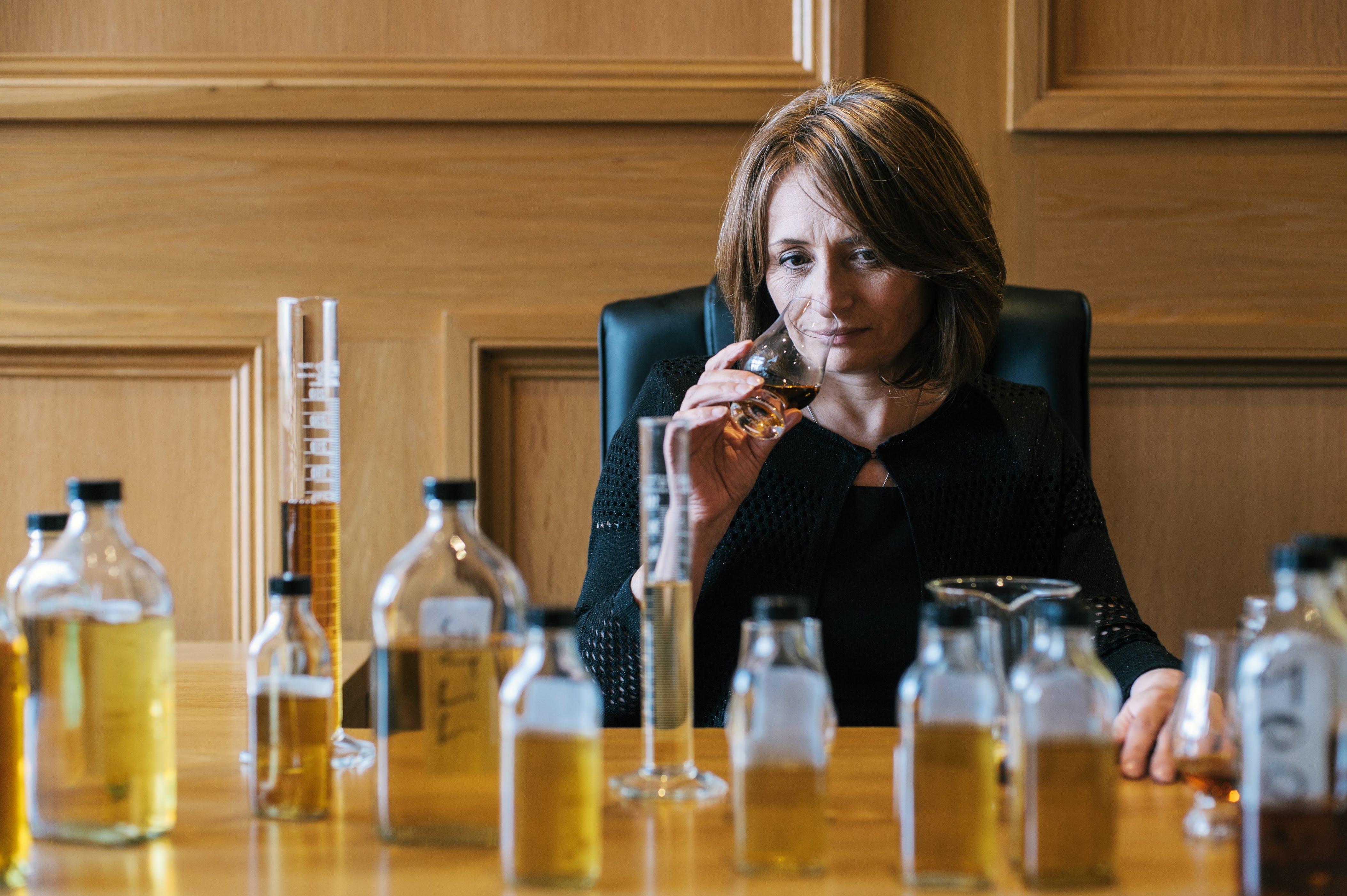
Dr. Rachel Barrie
What hasn’t changed — that you think needs to — in relation to women and diversity in the industry?
Elizabeth McCall:
The perception that women don’t drink or work in the whiskey industry.
Dr. Rachel Barrie:
Change is happening. The Scotch whisky industry reached a milestone moment in September 2020 through the launch of its Diversity and Inclusivity Charter, which demonstrates the sector’s commitment to creating an inclusive workforce, welcoming and representative of people from all backgrounds, built on equal opportunities, fairness, and respect of differences, across gender, ethnicity, disability, age, and sexual orientation.
Nicole Austin:
I find that my gender is often the first point of discussion, not my work in the industry. I am still interviewed much more frequently for pieces that are about being a woman in whisky than about just my whisky.
Emma Walker:
I can only speak for Johnnie Walker and I am lucky to have had a very positive experience. More generally though, I believe that the world should be a more open, diverse place so everyone can feel comfortable being themselves. I believe we should all have the freedom to express and define ourselves as we want. Some of the changes that Diageo and Johnnie Walker have implemented in terms of diversity and inclusivity have been incredible. It is great to be part of an organization that is so proactive.
Diane Farrell:
I believe there is still the perception that whisky is a “man’s drink” and there is often disbelief when I tell people what I do. I often get asked, “Do you actually drink whisky?” or “Do you actually like whisky?” When I talk about whisky I get, “Oh, so you actually know what you’re talking about!” I see part of my role as educating and breaking down these barriers to normalize women working in whisky.
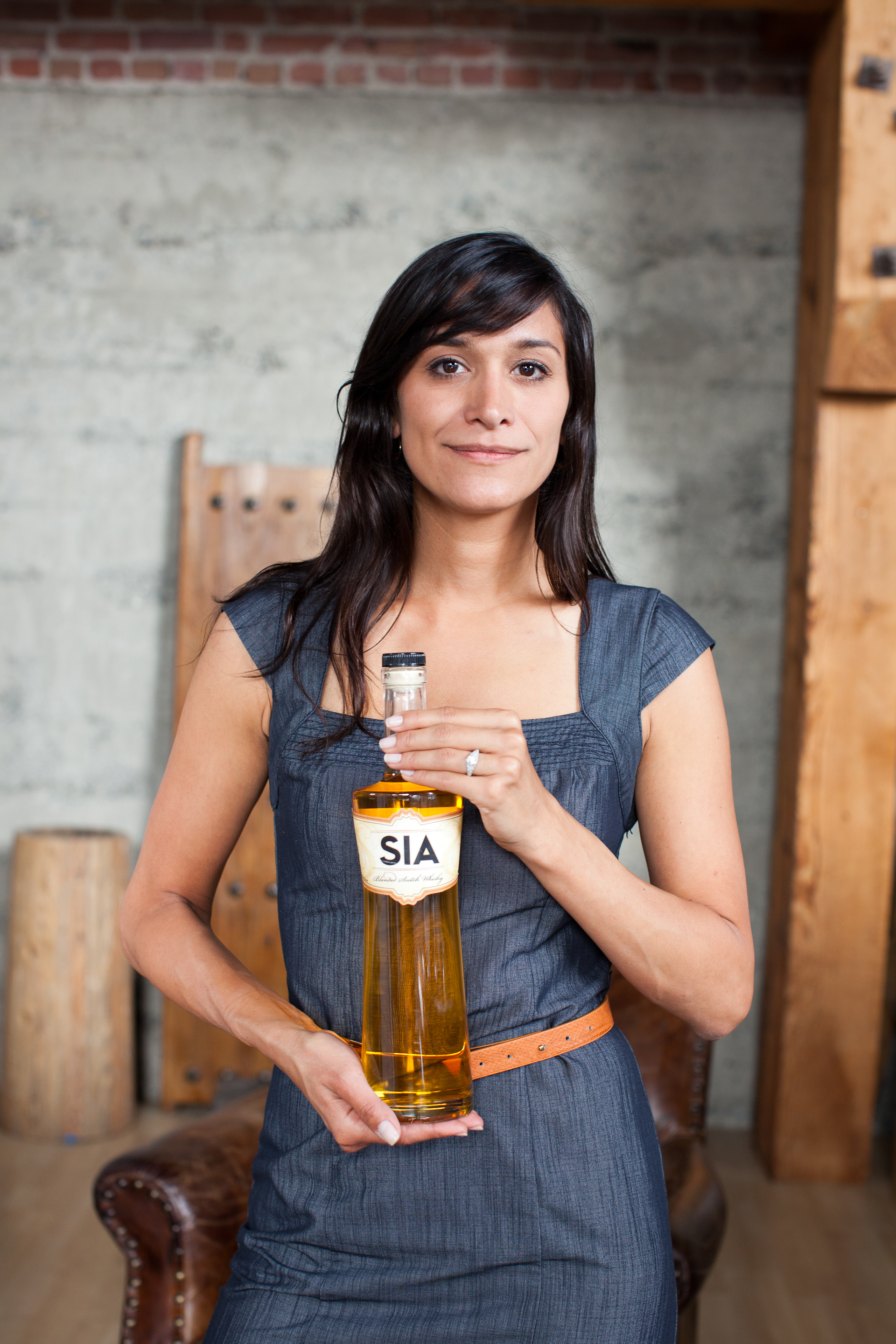
Carin Luna-Ostaseski
Carin Luna-Ostaseski:
Scotch whisky is an exciting category because there’s so much to explore. For years, it was seen as a man’s drink, reserved for more intimate moments, such as quietly sipping at home or in small gatherings for special celebrations. We are working to evolve and expand, and to break that stereotype. With the growing number of Scotch whisky drinkers — both men and women — comes a new desire to experience the liquid in different ways.
Ann Soh Woods:
While progress has been made, there is still work to be done in the industry. Women remain underrepresented in the industry and I believe they have much to contribute. What’s exciting is that there is so much to explore in the whiskey category as industry trends are constantly changing. Consumers — both men and women — entering the category are eager to learn and test with unique flavors and experiences, so it leads to more opportunities to help with consumer education and introduce our unique whiskey to those seeking to expand their palates and try new offerings in the category.
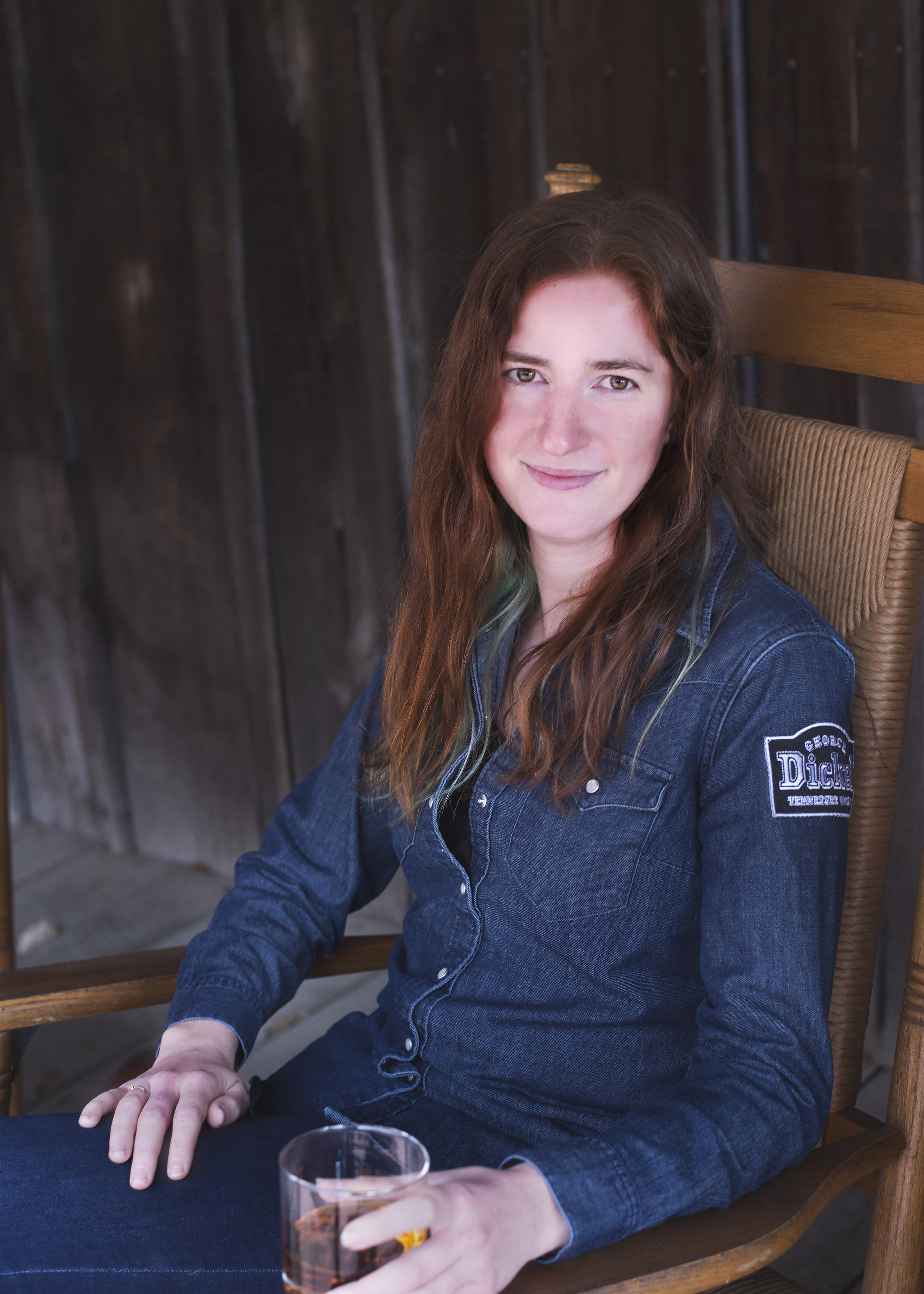
Nicole Austin
What do you do in your day-to-day to help bring about changes to bolster women and more diversity in whiskey?
Elizabeth McCall:
I work hard, I do my job, and am not afraid to get my hands dirty. Having the respect of the Woodford Reserve team is what I hold so close to my heart. They don’t see me as a woman in the role of Assistant Master Distiller. They just see me as “Eli” — a part of their team working to make top-quality whiskey. That to me is what will bring about change, to normalize women in whiskey.
Dr. Rachel Barrie:
Day-to-day, I am dedicated to increasing the accessibility of the industry and single malt Scotch whisky to women and a more diverse audience. On an almost weekly basis, I engage with female aficionados and novices through tastings, whisky judging, and live discussions with media. Through embracing the virtual space, I hope to reach a more diverse audience, connecting people across the world through a common appreciation of our wonderful spirit.
Nicole Austin:
Being visible as a woman in this industry matters is an implicit invitation for others. Working in the day-to-day (and overseeing major decisions!) lets women know that there is room for others like them in the whisky world.
Samara Rivers:
Everything! From consulting with brands on ways to be more diverse in their marketing efforts or within their companies to using my social media platform to highlight women and diversity within the space. My entire career is built on D&I [diversity and inclusion] in that space.
Emma Walker:
We make our whiskies to be enjoyed by everyone and that is at the heart of everything we do — no one is excluded. This year, I was part of the Craftswomen campaign, celebrating the pioneering women who make some of the best spirits in the world. For that campaign, we launched Jane Walker by Johnnie Walker, which I am very proud of.
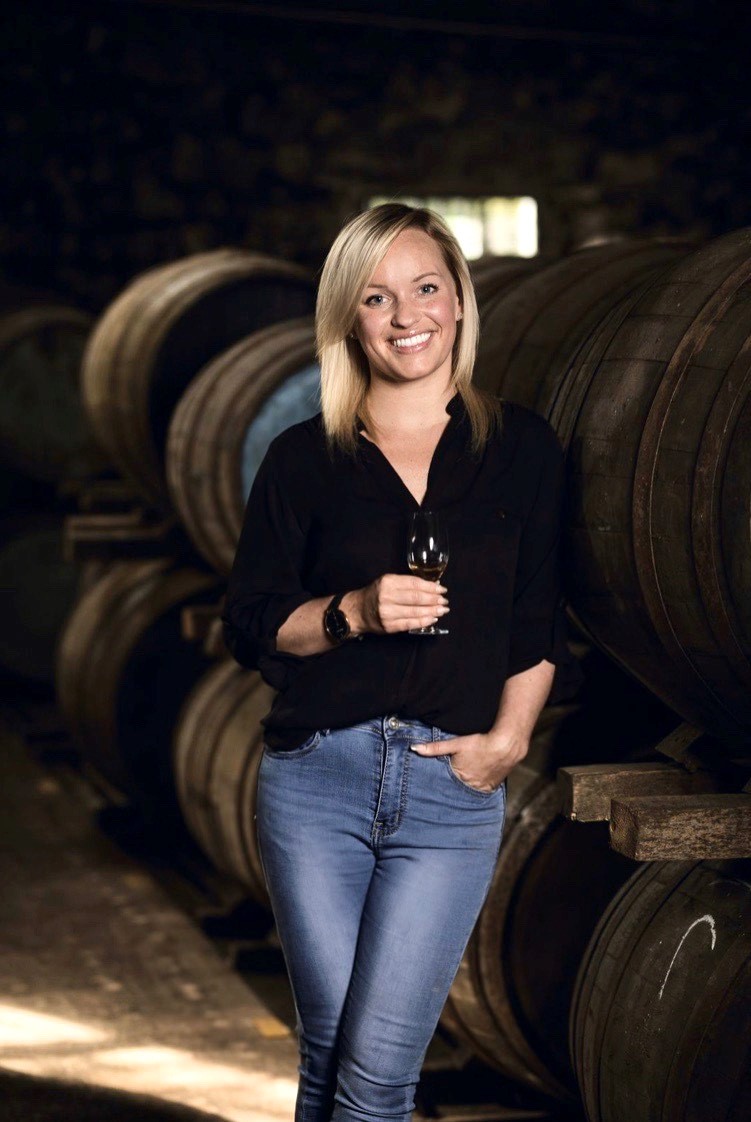
Diane Farrell
Diane Farrell:
I educate and normalize the conversation. I have an all-female management team, but what is key for me is that they are the right people for the role irrespective of their gender. They are strong women who deliver great improvement for the business and I am proud of what they do.
Carin Luna-Ostaseski:
SIA has always believed in supporting female entrepreneurship, and for nearly a decade we have donated a portion of all our sales towards organizations that help women start and run their own businesses. I give major credit to the amazing women who make something out of nothing, and especially to those in the Scotch whisky industry who have worked very hard for the distinction of Master Blender, including Maureen Robinson, Caroline Martin, and Emma Walker to name but a few.
I’m also always keeping an eye out for new women-founded distilleries.
Ann Soh Woods:
I am proud to be a woman in this business and hope to inspire other women that they too can navigate and thrive in a typically male-dominated industry. Most of my team are women and we definitely celebrate diversity at Kikori Whiskey.
I’m aware that there are not nearly enough Asian-American women in the spirits industry, let alone women in the industry. I wasn’t aware that a female founder in the spirits industry was such a rare thing but it only fueled my motivation. I try to speak up when I can on behalf of women and BIPOC in the industry and want to help break down barriers whenever possible.
Maureen Robinson:
This is a thought-provoking question. I like to think of myself as a mentor to all the members of the team especially the newer ones which recently have been mainly female. From a consumer and cultural perspective, I think it is known in this industry that if you have a passion, then you should follow it.
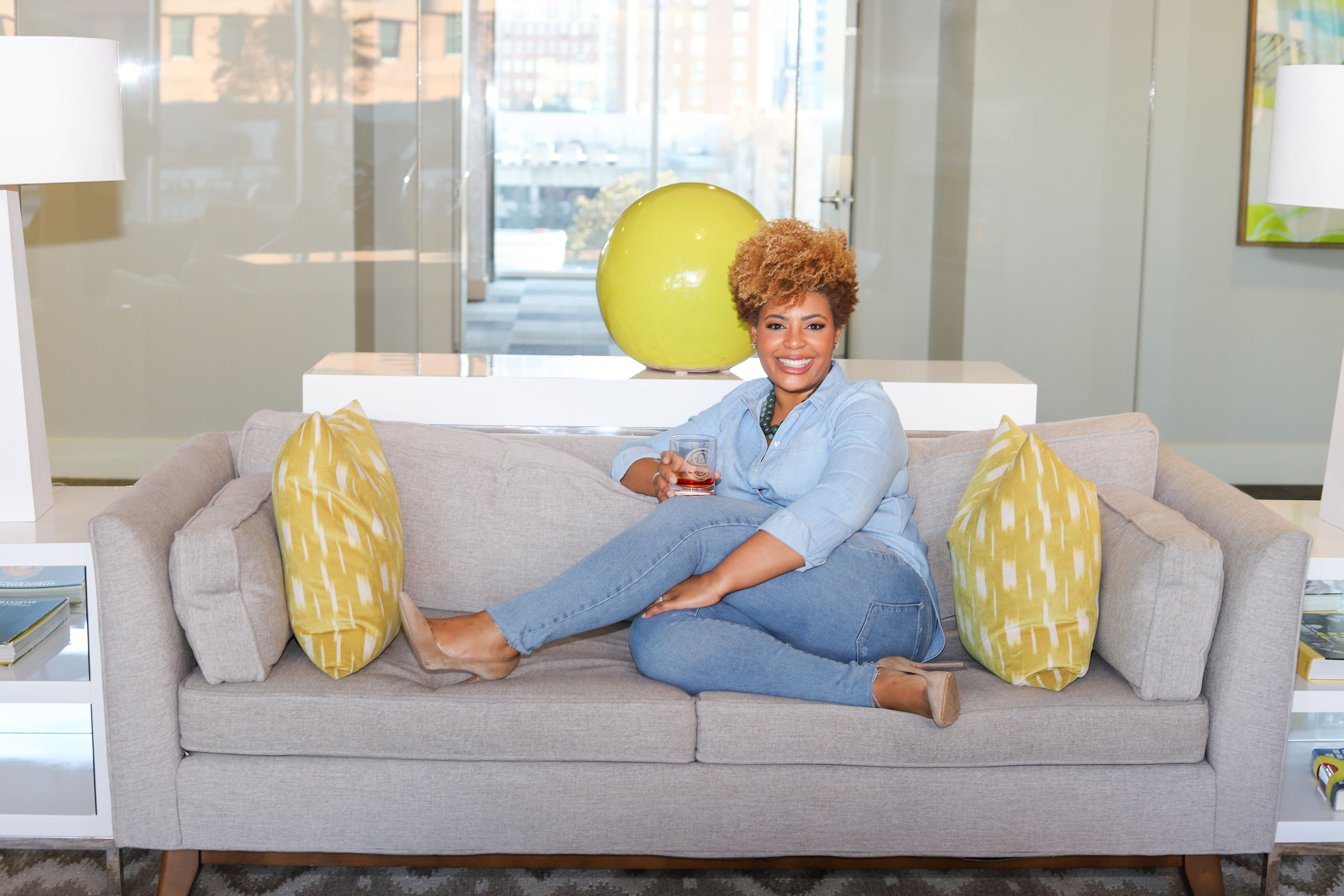
Samara Rivers
What can the average whiskey drinker do to not only celebrate but bolster women and BIPOC in the whiskey industry?
Elizabeth McCall:
Don’t assume that women don’t want to drink whiskey. Don’t act surprised when you see a woman order a whiskey drink or purchase a bottle of whiskey for themselves. Maybe strike up a conversation with the woman to see what it is about that particular whiskey that made them order or purchase it.
Dr. Rachel Barrie:
I would encourage whisky drinkers to appreciate the diversity of people working in the industry and enjoying whisky all across the globe. We make the most diverse spirit in the world, after all, so let’s celebrate the richness of this diversity!
Nicole Austin:
I would encourage whisky drinkers to vote with their dollars! Buy whiskies and show support to companies who bolster women and BIPOC in the industry.
Samara Rivers:
Be an informed consumer. When purchasing whiskey, drinkers should prioritize what brands are doing for the BIPOC community just as much as they prioritize the flavor notes behind their preferred spirits. Know the “why” behind the brands that you drink.
One bourbon that I love was founded by a German immigrant who overcame major obstacles, I.W. Bernheim, who created I.W. Harper Kentucky Straight Bourbon Whiskey. Bernheim arrived in the States with $4 and a dream for a better life. Today, I.W. Harper is working towards ‘redefining excellence,’ meaning they are celebrating Black and Brown entrepreneurial spirits who have made a name for themselves through hard work and dedication in their industries.
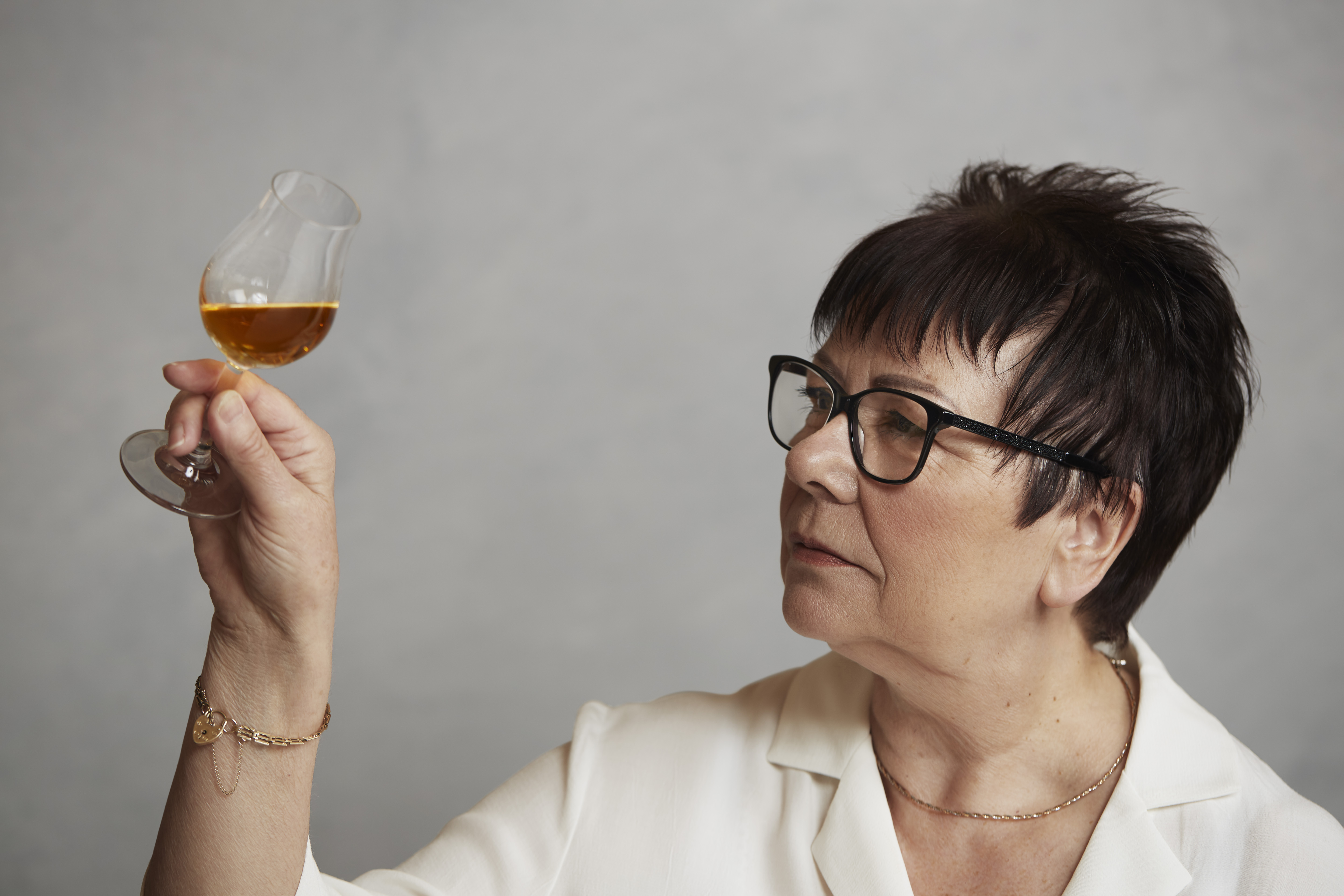
Maureen Robinson
Emma Walker:
As I say, we make whisky to be enjoyed by everyone. I think if whisky drinkers celebrate and enjoy whisky in the same spirit that we make it, then people will have done their little bit. There may have been a time when there was a perception that whisky should be consumed in a certain way by certain people … but that is not something that has ever been in the mind of the team at Johnnie Walker. We know that our whisky is consumed all over the world by lots of different people and that is something that we think about when crafting our whiskies.
Diane Farrell:
For me, it is breaking down the perceived barriers that still exist in pockets. The whisky industry is changing — from who drinks whisky, to how and where we drink it — and I think educating others on this is where the biggest shifts will come from. We can all play our part.
Carin Luna-Ostaseski:
The best way to celebrate women in whisky is to support their products. Familiarize yourself with brands that are female-founded, purchase them from retailers as a gift for yourself or for others, and request that your bartender use them in your cocktails. The Women’s Cocktail Collective is a great starting point to learn more about these brands and the amazing women behind them.
Ann Soh Woods:
In SoCal, you have a very receptive, open-minded culture where people are familiar with different cultures. So when I first entered the market, women were already part of the fabric here in L.A., as it should be. I think expanding this mindset for whiskey drinkers to become aware of female and BIPOC-founded brands and trying these liquids in cocktails will go a long way in celebrating diversity in the industry.
Maureen Robinson:
When enjoying your whisk(e)y of choice, don’t be afraid to impart your knowledge or reasons why you are drinking it. I think there are still some myths out there that you have to be a connoisseur to enjoy these products but that is not true. We create these wonderful spirits for everyone to enjoy.
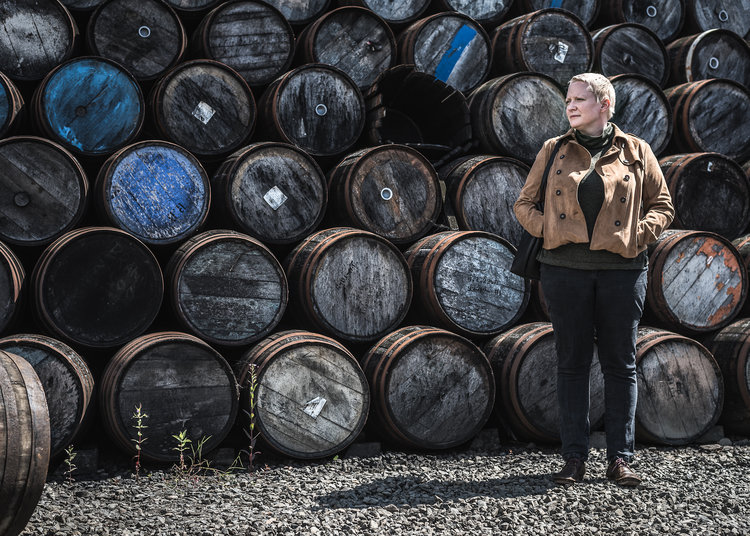
Emma Walker
In your estimation, what do you think the whiskey industry will look like ten … even 20 years from now?
Elizabeth McCall:
That is a tough question. I do think the whiskey industry will still be going strong. I know Woodford Reserve will be a globally recognized brand, and we will no longer be talking about women as outliers in the whiskey industry. It will be as common to see women working in the whiskey industry and consuming whiskey as it is to see men. It will be beautiful!
Dr. Rachel Barrie:
In ten or even 20 years from now, the whisky industry will have grown and become an even more wonderful place to work, with increased creativity and collaboration in the workforce and connectivity with the consumer. With each generation, I think the appreciation and value of diversity will become second nature in how we all live and work.
Nicole Austin:
I think the future of the whisky industry will definitely be more diverse — both the whiskies created and the people creating them.
Most recently at Cascade Hollow Distilling Co., I’ve had the chance to flex my creative muscles with our new Cascade Moon Whisky Series. For the first edition that we launched this fall, I was inspired by gose-style craft beers and wanted to create something that was unusual and rare, feeling different from everything else in the whisky category right now. Stay tuned for news about new releases in the series, but each new whisky will be inspired by something a little different and have a unique backstory!
Samara Rivers:
Over the next ten, even 20 years, I think the industry will embrace the use of technology as we adapt to a “new normal” in post-COVID life, particularly through the execution of virtual consumer events and engagement. Whiskey brands will still rely on and support bars and restaurants, but I hope they will prioritize working with organizations such as Black Bourbon Society and other membership organizations that bring everyone together — and emphasize diversity and inclusion — in a virtual, safe way.
Emma Walker:
It’s amazing to think that it is 200 years since our founder John Walker first opened the doors to a small grocery store in rural Scotland, starting this incredible journey. As a team, we know we’re playing a part in a long tradition of flavor exploration and craft, and that’s something that excites me and inspires us all. It is my belief that that spirit of innovation will bring many fascinating discoveries and push the boundaries of what is possible in whisky.
So do I know what the next ten years will bring? No. But am I excited to see what it will bring? Very much so.
Diane Farrell:
There won’t be any need to talk about the topic of women in whisky anymore. It will be normal and exist without bias.
Carin Luna-Ostaseski:
Scotch whisky popularity in the U.S. is expanding and new generations of whisky drinkers are branching out across flavor profiles and brands. Consumers are continuing to look for new experiences. We have an incredible opportunity to continue to introduce more men and women into the Scotch whisky category because our whisky has such an approachable, easy-to-enjoy flavor.
Consumers today are also seeking out brands that represent their values. Being one of the first women to ever create a Scotch whisky company, I hope this paves the path for more to do the same, in this or in any other industry.
Ann Soh Woods:
Look at the current demographics of whiskey drinkers and you can see the future. The whiskey category attracts a diverse group of consumers with a very sizable increase in women enthusiasts. I believe this trend will continue and we will see the diversity of whiskey drinkers continue to grow. The current trends are a leading indicator of what I expect to see throughout the industry in the years ahead.
Maureen Robinson:
Over the past few years, whisk(e)y has become more popular and I think that is because the industry recognized that the way these types of drinks were portrayed had to change. These are very versatile products and are for everyone. I think there was a perception out there you had to be a certain age, or only drink them neat or with a dash of water. We have started that journey of change and I see it continuing as each generation comes along and as expectations change.
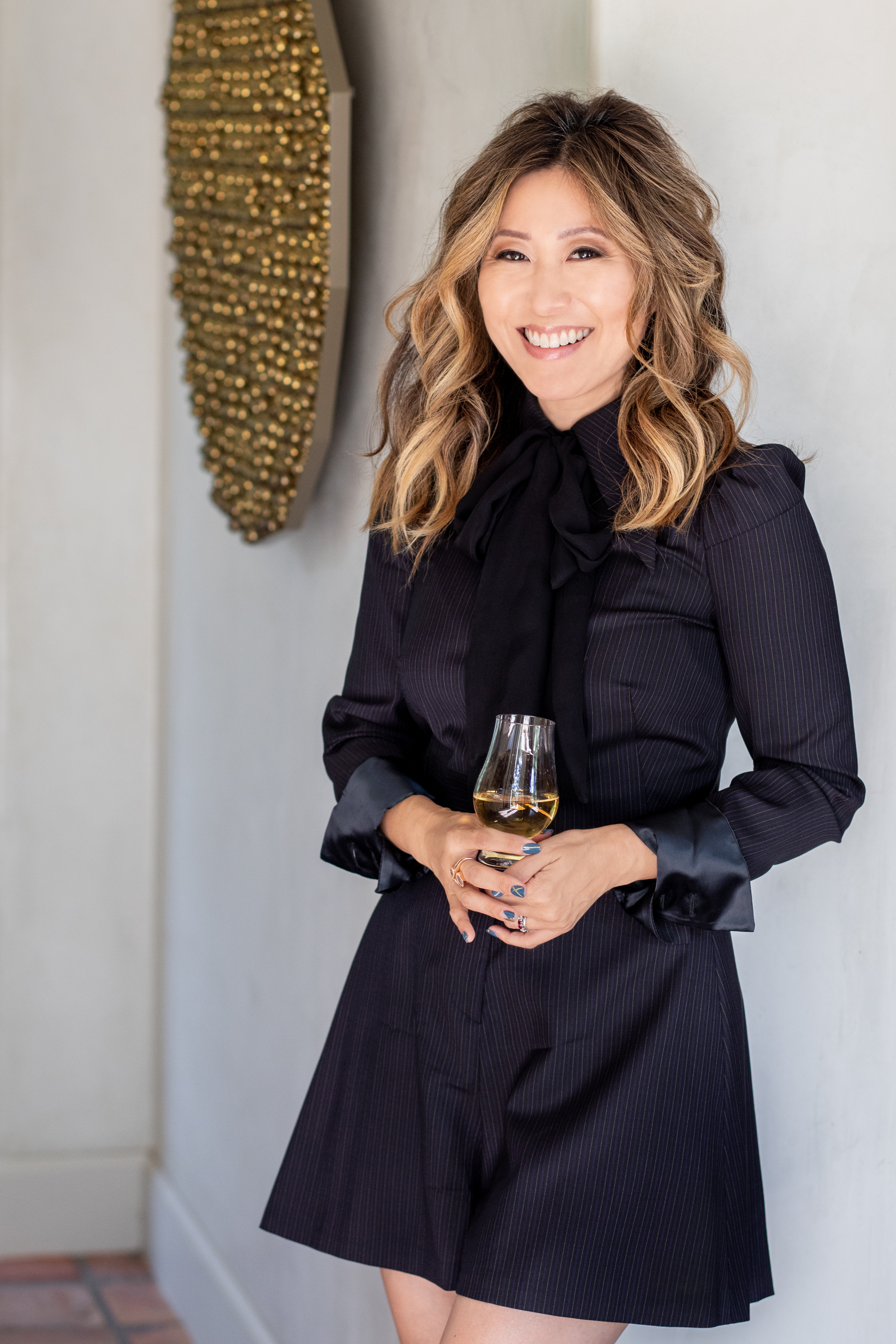
Ann Soh Woods







